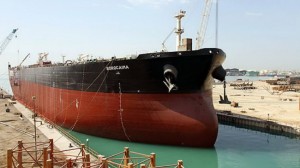 Western bullying has not really helped but sanctions have caused serious economic hardship to Iran. No progress was made in new projects for many years due to the difficult conditions in Iraq. India must look for opportunities in both the countries in oil and�natural gas
Western bullying has not really helped but sanctions have caused serious economic hardship to Iran. No progress was made in new projects for many years due to the difficult conditions in Iraq. India must look for opportunities in both the countries in oil and�natural gasIndia imports 184 million tonnes (MT) of crude of which 13%, or to 24 MT came from Iraq in 2012-13. In the same period, Iran supplied 13.3 MT, as against 18.1 MT in 2011-12, due to the sanctions imposed by the US and the European Union.
These sanctions were imposed primarily to force Iran to halt its nuclear programme, which Iran has stated, time and again, that it is in the interest of the country and only for peaceful purposes. It has managed to dodge various UN resolutions and has not had full inspection by UN/AEC, etc. Western bullying has not really helped but sanctions have caused serious economic hardship to the country.
In the case of Iraq, way back in 2000, during Saddam Hussein�s regime, ONGC Videsh became the sole licensee for block No 8, a large on-land block in the western desert, which became effective in May 2001, but no progress was made thereafter due to the difficult conditions in the country.
After the invasion and overthrow of�Saddam Hussein�and the limping back to normalcy in 2008, ONGC Videsh continued its work under the new gas and oil law; and the block No. 8 is now estimated to hold 645 million barrels of reserves, out of which 9% (about 54 million barrels) are likely to be recovered. The actual production may vary�lower or even higher than the present estimates.
Meanwhile, Iraq has also offered three new blocks, in the Middle Furat oilfields, where oil has been discovered, on a nomination basis. At the moment, no details are available on the estimated reserves or the type of crude from exploratory holes drilled at the site.
Iraq has also expressed interest in the Paradip refinery proposed to be set up by Indian Oil Corporation (IOC) in Odisha.
All these were stated by�petroleum and natural gas�minister Veerappa Moily. �He felt that in view of the generous offer, work can start immediately as no time would be really be spent in exploration that is normally associated in this industry.
The petroleum minister should now move on this issue immediately and no time should be lost in accepting the offer and commence work.
In the case of Iran, all the three companies involved, viz, Oil India, ONGC Videsh and IOC, have shown keen interest to accept the proposed offer of production sharing�contracts, whereby a 15% fixed return under the buy-back arrangement with national oil company of
Iran.
The only stumbling block is the US and European Union's sanctions against Iran which primarily targets the Iranian oil industry. Presumably, to overcome this impasse and technical snag, Iran oil minister Rostam Qaseme has offered to ship the gas to Sultanate of Oman in liquefied form where it can be processed into LNG which can then be shipped directly to India!
At the same time, Indian firms� interest to develop the gas fields in Farzad B, where the initial estimates have shown recoverable reserves of 12.8 trillion cubic feet must be followed up seriously by the Indian oil ministry so that�contracts�can be signed and spadework initiated at the site.
These developments are encouraging, and it now remains to be seen how seriously and effectively the government works on the offers received.
By Money Life
The Iran Project is not responsible for the content of quoted articles.










